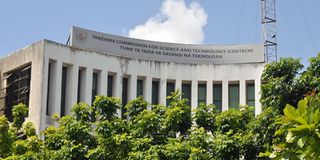Prime
How Tanzania plans to make local research more accessible

For many Tanzanians, finding local research is a frustrating task. PHOTO | iStock
What you need to know:
- The government is investing heavily in the Tanzania Commission for Science and Technology (Costech) so as to make local research more relevant and accessible to the public
Dar es Salaam. Every year, Tanzanian researchers conduct numerous studies addressing key issues in health, agriculture, energy and education.
However, these findings often remain tucked away in institutional archives, inaccessible to the public and policymakers who could use them to address societal challenges.
This disconnect sparked concern among experts, stakeholders, and the government during a science conference in Dar es Salaam this week.
The experts said that prioritising the dissemination of local research findings was essential for solving Tanzania’s unique problems and informing evidence-based policymaking.
“There are many studies by Tanzanian researchers, but they rarely reach the public. Most are done to meet academic requirements or personal goals, with little effort to share the results widely,” said development expert Mussa Zungu.
“If these findings were made accessible, they could transform our communities.”
For many Tanzanians, finding local research is a frustrating task.
Most students and professionals rely on Google for information, only to discover that readily available studies are from Western researchers.
These studies often fail to address local challenges.
“Tanzania has excellent research institutions and journals like The African Review by the University of Dar es Salaam, but these are not easily accessible to the average Tanzanian,” noted an education researcher, Dr Asha Kibona.
“We need to bridge this gap to make our research impactful.”
Recognising this issue, the government has ramped up its efforts to support research and ensure the findings benefit society.
Over the past three years, it has allocated more than Sh30 billion to the Tanzania Commission for Science and Technology (COSTECH) to fund over 20 sector-specific research initiatives.
Deputy Prime Minister and Minister for Energy, Mr Doto Biteko, emphasised the government’s commitment during the 2024 Science, Technology, and Innovation Conference & Exhibition (STICE).
“The government will continue to provide a supportive environment for researchers,” he said.
“We must prioritise our local researchers’ work so that it delivers tangible results for our society. Research findings should guide policy formulation and provide solutions to our challenges.”
Between 2015 and 2022, the government secured Sh222.8 billion from development partners to enhance research infrastructure, fund studies, and support startup innovations.
Countries like India and South Africa provide valuable lessons on making research impactful.
In India, the government has established platforms like the National Digital Library, which houses a vast repository of academic and research materials accessible to everyone.
South Africa has prioritised linking universities with industries, ensuring that research addresses practical needs.
“These examples show us what is possible when local research is given priority,” said COSTECH Director-General, Dr Amos Nungu.
“We need to invest in similar systems to ensure Tanzanians can access research findings.”
At the recent STICE conference, participants resolved to enhance collaborations between higher education institutions and industries.
They also emphasised the need for COSTECH to coordinate shared research resources and invest in low-cost technologies for societal benefit.
“Affordable technologies, such as carbon capture solutions, can address environmental challenges while driving industrial growth,” notes Dr Nungu.
The minister for Education, Science and Technology, Prof Adolf Mkenda, highlighted the importance of investing in human capital to drive scientific and technological advancements.
“Developed countries have achieved sustainable growth by prioritising human resources as their key investment,” he said.
“We have abundant natural resources, but without the capacity to process them, we will lag behind.”
Prof Mkenda stressed the need to promote science, technology, engineering, and mathematics (STEM) education to develop skilled youth capable of transforming Tanzania’s economy.
Efforts are underway to send students abroad for advanced studies in these fields.
For Tanzania to fully benefit from its research potential, a cultural shift is needed.
Researchers must see dissemination as a vital part of their work, and the government should facilitate platforms for sharing findings.
Universities and research institutions can also play a critical role by digitising journals and making them freely accessible.
"We need to create a system where research findings are not just archived but actively used to improve lives," said Dr Kibona.
By unlocking the potential of local research, Tanzania can tackle its challenges more effectively, improve policymaking, and accelerate development in science and technology.





